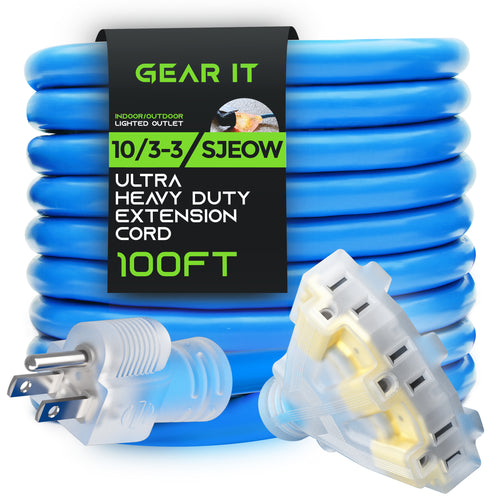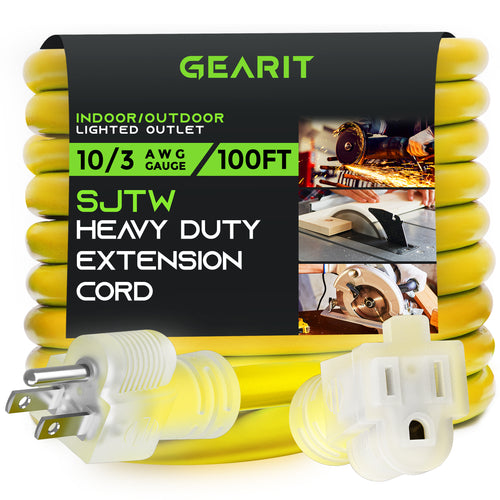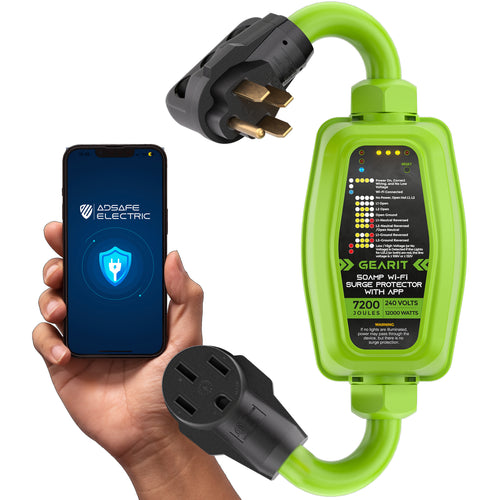
As the skies darken and thunder rumbles ominously, it's essential to prepare for the potential impact of a large storm on your home's electrical systems. Whether you're facing heavy rain, strong winds, or the threat of power outages, having the right extension cords and electrical wiring can make all the difference in ensuring safety and maintaining connectivity during inclement weather. In this guide, we'll discuss the types of extension cords and electrical wiring you need to weather the storm and emerge unscathed.
Extension Cords for Outdoor Use
When it comes to outdoor electrical connections during a storm, safety should be your top priority. Opt for extension cords specifically designed for outdoor use, featuring the following characteristics:
Weatherproof Construction: Choose cords with durable weather-resistant jackets that can withstand exposure to rain, snow, and wind without compromising safety.
Heavy-Duty Gauge: Select cords with a heavier gauge wire (such as 12 or 10 AWG) to handle higher electrical loads and minimize voltage drop over long distances.
Built-in Ground Fault Circuit Interrupter (GFCI): For added protection against electrical hazards, consider extension cords equipped with a GFCI that automatically shuts off power in the event of a ground fault.
Surge Protectors and Power Strips
During a storm, power surges caused by lightning strikes or utility grid fluctuations can wreak havoc on sensitive electronic devices. Protect your valuable equipment by investing in surge protectors and power strips with the following features:
High Joule Rating: Look for surge protectors with a high joule rating, indicating their capacity to absorb and dissipate excess electrical energy during a surge.
Multiple Outlets: Choose power strips with multiple outlets to accommodate all your devices, ensuring they remain connected and protected from power fluctuations.
Coaxial and Telephone Line Protection: If you use cable or telephone connections, consider surge protectors with built-in protection for these lines to safeguard against damage to your equipment.
Permanent Electrical Wiring Considerations
For long-term storm preparedness, it's essential to ensure that your home's electrical wiring is up to code and capable of withstanding severe weather conditions. Consider the following factors when assessing your electrical wiring:
Grounding: Ensure that your home's electrical system is properly grounded to dissipate excess electrical energy and minimize the risk of shock or fire.
Overcurrent Protection: Install circuit breakers or fuses to protect against overcurrent conditions that could lead to electrical fires or damage to your appliances.
Regular Maintenance: Schedule periodic inspections by a qualified electrician to identify and address any potential hazards or deficiencies in your electrical wiring.
Feel Better Prepared
As storm season approaches, taking proactive steps to safeguard your home's electrical systems is essential for protecting your property and ensuring the safety of your family. By investing in weatherproof extension cords, surge protectors, and properly maintained electrical wiring, you can minimize the risk of electrical hazards and maintain connectivity even in the face of nature's fury. So don't wait until the clouds gather; prepare now to weather the storm with confidence and peace of mind.





















































